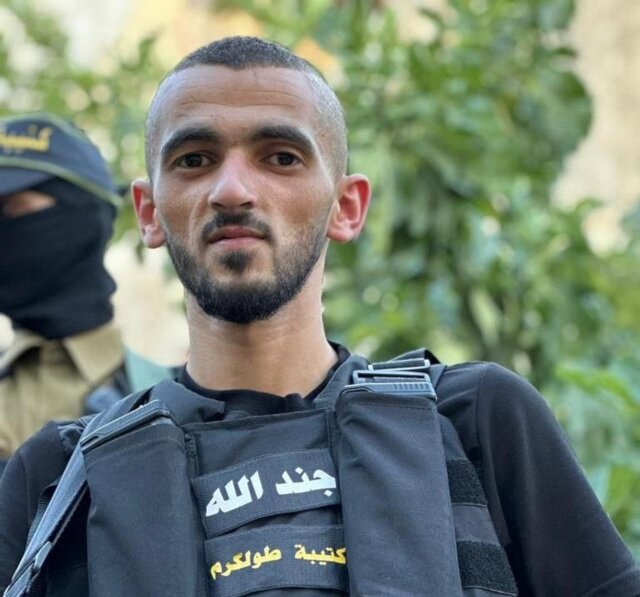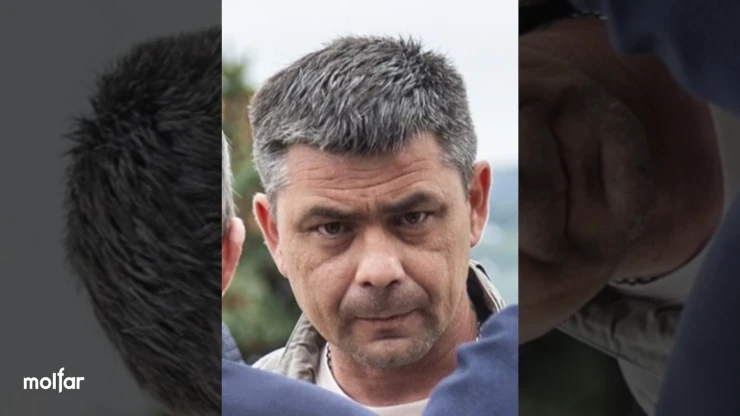October 2014 Briefs
October 2014 Briefs
FSA COMMANDER ABU ISSA BECOMES HIGH VALUE TARGET FOR ISLAMIC STATE IN SYRIA
Nicholas A. Heras
On October 17, members of a Turkish criminal syndicate based in the Turkish city of Sanliurfa near the Turkish-Syrian border reportedly cooperated with the Islamic State organization in a failed attempt to kidnap “Abu Issa,” a moderate Syrian rebel commander, and his 20-year-old son (The Telegraph [London], October 19; ARA News [Sanliurfa], October 18). Abu Issa, a man in his mid-40s, is a former farmer turned rebel who leads Liwa Thuwar al-Raqqa (Raqqa Revolutionaries’ Brigade), an Islamist organization that is one of the most prominent remaining affiliates of the Free Syrian Army (FSA) in the northern Raqqa governorate. Liwa Thuwar al-Raqqa has consistently fought against both the Islamic State and the al-Assad government (Washington Post, October 21; Orient News [Dubai], April 10; Khabar Online [Tehran], June 18, 2013). Reportedly, Liwa Thuwar al-Raqqa is one of the Syrian armed opposition groups that has been selected for training in Turkey by the United States and its coalition allies; it had been receiving weapons, such as anti-tank missiles, and financial and material support for its fighters through the Sanliurfa border gate (The Telegraph [London], October 19; Newroz News Network [Istanbul], August 2).
Abu Issa is believed to be one of the Islamic State organization’s high value targets within the Syrian armed opposition as a result of the relatively high number of casualties that the organization has sustained fighting against Liwa Thuwar al-Raqqa (The Telegraph [London], October 19; al-Quds al-Arabi, May 13; Al-Mayadeen [Beirut], February 6). Issa led Liwa Thuwar al-Raqqa in the Syrian armed opposition campaign against the Islamic State organization in January 2014, an effort that coordinated FSA-affiliated militias, affiliated fighting groups of al-Jabhat al-Islamiya (Islamic Front – IF), Jaysh al-Mujahideen (Mujahideen Army) and other organizations (Maktab Akhbar Sooria [Damascus], January 13). In May, Liwa Thuwar al-Raqqa, under Abu Issa’s orders, is believed to have successfully assassinated Abdul Rahman al-Hamdan, an important IS commander who headed the militant Salafist group’s security at the strategic Tabqa Dam in the Euphrates River valley near Raqqa (Maktab Akhbar Sooria [Damascus], May 30).
Also under Abu Issa’s leadership, Liwa Thuwar al-Raqqa and other predominately Arab FSA affiliates have formed a joint operations command with the Kurdish militia network Yekineyen Parastina Gel (YPG – People’s Protection Units) and the Kurdish-majority, FSA-affiliate Jabhat al-Akrad (Kurdish Front) in order to coordinate the defense of the Syrian-Turkish border town Kobane (Ayn al-Arab in Arabic) against the Islamic State organization (al-Quratas News [Baghdad], September 29; Sada al-Sham [Damascus], August 26; Newroz News Network [Istanbul], August 2). Abu Issa is believed to be the preeminent Arab FSA commander coordinating with the Kurds in northern Raqqa, an effort that has won him praise from the YPG and may have contributed to the timing of the Islamic State organization’s attempt to kidnap him and his son (ARA News [Sanliurfa], October 24; Firat News [Amsterdam], October 23; al-Sabeel [Amman], September 29). Some Kurdish sources, however, suggest that Liwa Thuwar al-Raqqa fighters had targeted Kurdish communities prior to the defense of Kobane (Newroz News Network [Istanbul], August 2).
Issa has also led Liwa Thuwar al-Raqqa in cooperation with (and reportedly has pledged allegiance to) the al-Qaeda affiliate Jabhat al-Nusra (JN – Victory Front) in battles against the Islamic State organization in and around the city of Raqqa after the Islamic State conquered the city in May 2013 (al-Akhbar [Beirut], April 17; al-Safir [Beirut], April 17; Orient News [Dubai], April 10; al-Quds al-Arabi, March 9; al-Akhbar [Beirut], November 5, 2013). Liwa Thuwar al-Raqqa broke with JN this April, mainly as a result of its leadership’s unwillingness to implement the Shari’a guidelines mandated by the al-Qaeda affiliate. [1]
The Islamic State organization perceives Abu Issa as a significant threat to its ongoing operations to consolidate its control over the northern Raqqa and eastern Aleppo governorates. As an active Syrian rebel commander who has led Liwa Thuwar al-Raqqa into consistent fighting against both the al-Assad government and the Islamic State organization, Abu Issa’s reported unwillingness to follow the Shari’a regime established by JN in Raqqa and his association with the FSA would make him an attractive Syrian partner for the United States and its coalition allies. Furthermore, Issa’s role in brokering joint operations between predominately Arab FSA affiliates and the YPG against the Islamic State, a tactical agreement that is not without uneasiness on both sides, could bode well for Syrian opposition efforts to mediate local ethnic conflict between Arabs and Kurds in contested, mixed areas. Provided he survives, Abu Issa is likely to be one of the key FSA leaders empowered by the coalition.
Nicholas A. Heras is a Middle East researcher at the Center for a New American Security (CNAS) and an associated analyst for the Jamestown Foundation.
Note
1. “Announcement of Clarification Concerning Liwa Thuwar al-Raqqa,” Jabhat al-Nusra, Posted on the “Muslim.org” message board on April 16, 2014, https://www.muslm.org/vb/showthread.php?531390-%D8%A8%D9%8A%D9%80%D9%80%D8%A7%D9%86-%D9%88%D8%AA%D9%88%D8%B6%D9%8A%D8%AD-%D8%A8%D8%AE%D8%B5%D9%80%D9%80%D9%80%D9%88%D8%B5-%D9%84%D9%88%D8%A7%D8%A1-%D8%AB%D9%88%D8%A7%D8%B1-%D8%A7%D9%84%D8%B1%D9%82%D8%A9-%D8%AC%D8%A8%D9%87%D8%A9-%D8%A7%D9%84%D9%86%D8%B5%D8%B1%D8%A9.
ASSAD REGIME USES PALESTINIAN MILITIA LEADER MUHAMMAD AL-SA’EED IN BID TO RECAPTURE ALEPPO
Nicholas A. Heras
The Syrian military and its allied and auxiliary forces, which include the Lebanese Hezbollah, Iranian Revolutionary Guards Corps (IRGC)-organized Shi’a fighting groups and local affiliates of the loyalist militia network National Defense Force (NDF), are currently attempting to surround the rebel-held, eastern areas of the northwestern Syrian city of Aleppo (al-Arabiya [Dubai], October 20). One of the loyalist militias supporting the Syrian military’s offensive is Liwa al-Quds (Jerusalem Brigade), an organization composed of predominately Sunni Palestinian fighters from the al-Nayrab refugee camp, a mainly pro-Assad area of Aleppo that has been subject to long sieges by the armed opposition. Al-Nayrab is also adjacent to an important Syrian air base of the same name in the southeastern Aleppo suburbs (al-Mada [Beirut], October 16; Al-Monitor, March 14; al-Akhbar [Beirut], March 4, 2013, al-Safir [Beirut], March 4, 2013). Liwa al-Quds is believed to be one of the largest loyalist auxiliary forces operating in Aleppo and is led by Muhammad al-Sa’eed (Orient News [Dubai], August 14).
Al-Sa’eed (a.k.a. “The Engineer”) is a man in his late 30s and a native of the al-Nayrab camp who claims to hold a degree in mechanical engineering as well as a diploma in Arab and Islamic heritage studies. [1] He is reported to be a member of the Popular Front for the Liberation of Palestine-General Command, a Palestinian faction that is particularly strong in the al-Nayrab camp. This faction is believed to have organized the majority of the fighters from the camp and other areas of Aleppo that joined local NDF militias, which coalesced into Liwa al-Quds in September 2013 (Rojava News [Qamishli], August 26; Orient News [Dubai], August 14; All4Syria [Aleppo], April 11; al-Akhbar [Beirut], March 4, 2013). He features prominently in Liwa al-Quds’ photography, and the loyalist militia’s social media depicts him as an active and important commander who easily moves in and out of a number of different military and social contexts. His activities have included overseeing Liwa al-Quds forces in battle, receiving commendations from the Syrian military, interacting with the people in the refugee camp, leading discussions with camp youth, mediating a dispute between camp civilians, and attending a multi-sectarian gathering of local Aleppo civilian and loyalist leaders. [2]
One of the focal points of the current Syrian military offensive to encircle Aleppo is the Palestinian refugee camp of Handarat, which is located in the northern near-suburbs on one of the last remaining supply routes for Syrian rebels locked inside of the city (AFP, October 25; al-Aan [Dubai], October 7). Armed opposition sources claim that operatives from the Iranian al-Quds Force and Lebanese Hezbollah are coordinating the campaign, which utilizes Afghan, Pakistani, Kashmiri and Iraqi fighters fighting alongside the Syrian military and NDF militias (al-Jazeera [Doha], October 11). Liwa al-Quds, under the direction of al-Sa’eed, is believed to be participating in the offensive. There are also reports that a significant number of the rank-and-file of Liwa al-Quds are displaced Palestinian refugees from Handarat, which has been under the control of armed opposition groups since 2012 (Al-Monitor, October 16). The Palestinian loyalist militia, depicted as operating under al-Sa’eed’s direct command in the field, is also believed to have fought alongside the Syrian military under the supervision of the IRGC against the armed opposition in and around the Aleppo central prison, a major contested site in the battle for control of the city (al-Aan [Dubai], May 23; Zaman al-Wasl [Damascus], May 23). [3]
In the event that the Islamic State organization overcomes other Syrian armed opposition groups in areas east of Aleppo and becomes the primary combatant against the Syrian military for control of the city, Liwa al-Quds is likely to become a core component of the regime’s defensive strategy. As an active and battle-hardened loyalist leader, Muhammad Sa’eed would be well positioned to be a primary commander in the al-Assad regime’s efforts to hold Aleppo. Furthermore, Liwa al-Quds’ reported involvement with IRGC operatives and IRGC-backed organizations, such as Hezbollah and Iraqi Shi’a militias linked to Asa’ib Ahl al-Haq, provide al-Sa’eed the opportunity to be a leader within the IRGC’s regional militant network.
Nicholas A. Heras is a Middle East researcher at the Center for a New American Security (CNAS) and an associated analyst for the Jamestown Foundation.
Notes
1. See Liwa al-Quds: Fidayeen of the Syrian Arab Army Facebook, August 7, 2014,
2. See Liwa al-Quds’ Facebook page for more photos depicting al-Sa’eed’s active leadership role in a variety of military and social situations: https://www.facebook.com/alqudsbrigade.sy/photos_stream?ref=page_internal.
3. “The Regime Army Could Seize a Village and a Cement Plant in Aleppo,” Syrian Observatory for Human Rights, October 18, 2014, https://syriahr.com/en/2014/10/the-regime-army-could-seize-a-village-and-a-cement-plant-in-aleppo/.


